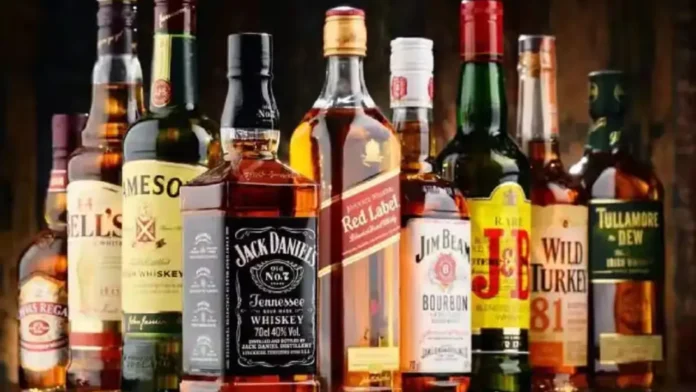Premium spirits and wine importers’ body ISWAI has urged state governments to implement an inflation-based pricing model, highlighting that industry margins have shrunk due to a rise in raw material costs.
As the cost of raw materials used to produce alcohol has gone up substantially and the MRP of liquor has not been revised in recent years, very little is left for the trade and manufacturers while state governments are taking away as high as 60-80 per cent of the share, according to International Spirits & Wines Association of India (ISWAI) CEO Nita Kapoor.
ISWAI is additionally advocating for the streamlining of excise duties levied by certain state governments, emphasizing that attempts to maximize revenue collections through such means will not contribute to volume growth.
Continue Exploring: ISWAI presses for immediate rationalization of excise duties on alco-bev sector
“The industry and manufacturers are now facing a lot of pressure. It’s like their back against the wall because if in the MRP, states share is roughly about 60 to 80 per cent, then what is being left on the trail and the sub-manufacturer is to share 20 per cent. The gross margins are diminishing,” Kapoor said.
The liquor industry stands as the primary revenue generator for state governments, second only to state taxes on petrol and diesel. However, state governments are hesitant to raise the Maximum Retail Price (MRP) out of concern for potential declines in sales volume.
“The states are saying that if we maximise our collections and do not want the volumes to drop, we will hold the MRP. So when they would hold the MRP, how will I give the sub-manufacturers a price increase,” she said.
As per the association, the costs of raw materials like ENA (extra neutral alcohol) have surged by 53 percent from 2018 to 2024. Likewise, the prices of other materials such as glass, labels, and paper packaging have seen increases of 79 percent, 29 percent, and 31 percent respectively during the same period.
“The inflation is going up y-o-y. If the manufacturers do not get the price increase, if the manufacturers do not ask if the industry does not have an inflation-based pricing model, where will this industry go,” said Kapoor adding “Let us not kill the golden goose..
ISWAI is advocating for a transparent inflation-based pricing model that relies on industry-submitted data.
“The industry has reached the bottom of the margins. you can not kill it. It contributes 2 per cent of the GDP. So you (state governments) need to balance ambitions,” she added.
Kapoor observed a notable growth trajectory within the alcoholic beverage segment, particularly in the premium category, where products priced above INR 900 to INR 1,000 per 750ml bottle are experiencing accelerated demand. ISWAI members are spearheading this trend with domestic brands and finished products (imported/bottled at origin). Additionally, there is a robust market for low-value liquor.
“As per my estimates by the end of the year, the industry will grow roughly about 2 to 3 per cent… The growth will be primarily polarising- INR 900 and above and the other will be cheap liquor, which will be roughly about INR 500 or INR 600 and below,” she said adding “so we are going to see a polarized growth, a trend that started after COVID and is just picking up.
Continue Exploring: Uttarakhand introduces new excise policy: Allows bottling of foreign liquor, targets INR 4,440 Crore revenue in FY 2024-25
“This industry is expected to touch about USD 63 billion in the next 3 to 4 years. Currently, it is somewhere between USD 53 billion and USD 55 billion. So it is going to be a pretty good growth from a value perspective,” Kapoor added.
When asked about the competition faced by global brands from Indian manufacturers, which are launching their single malts, she said “the more the merrier” as the segment is very minuscule.
“If I was to include all the brands all imported brands including bottled in India, you need many more brands to come in to be able to grow the top end… There is room for everybody. I would welcome as many domestic brands being developed. Our members are also doing,” she said.
ISWAI boasts members such as Bacardi, Beam Suntory, Brown-Forman, Campari Group, Diageo-United Spirits, Moët Hennessy, Pernod Ricard, and William Grant & Sons, all renowned global leaders in the spirits and wine sectors.
Various ISWAI members, including Diageo India and Pernod Ricard, have introduced Indian single malts to the market.
“It’s good for consumers and industry… It is also good for the government’s exchequer as the taxes on premium products are far higher. So if that grows, the states will be able to have a different strategy for revenue collections,” she said.
Regarding the ongoing negotiations between India and the UK for the signing of a Free Trade Agreement (FTA), Kapoor noted that the industry has presented its case, and the final decision now rests with the two governments.
Continue Exploring: Diageo and AB InBev gear up to navigate liquor sales disruptions during general elections





